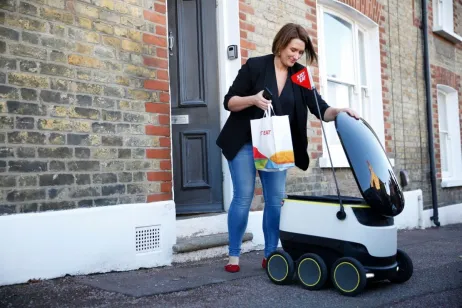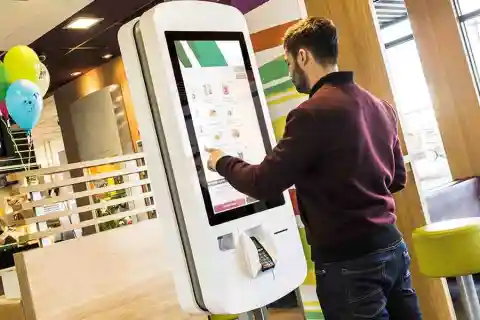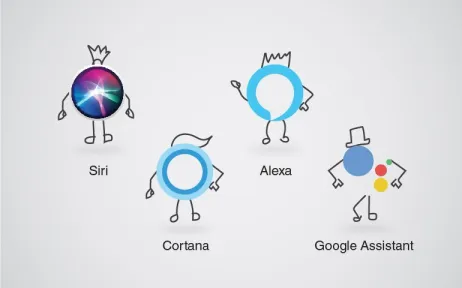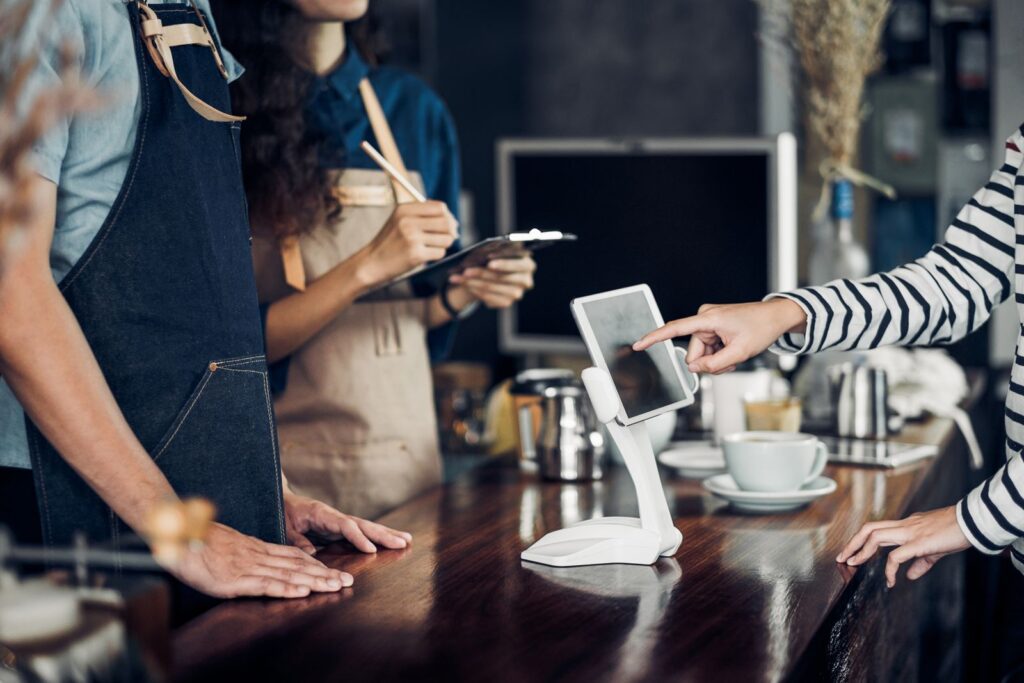The integration of Artificial Intelligence and Machine Learning in the restaurant industry is revolutionising the way restaurants operate in the Indian Subcontinent. With the increasing demand for personalised experiences and efficient operations, AI-ML is providing new and innovative solutions to meet these challenges.
From streamlining food ordering processes to the delivery processes, AI-ML is transforming the dining experience and elevating the competitiveness of the restaurant business. In this blog, we will delve into the various applications of AI-ML in the restaurant industry and how they are driving growth and success in this dynamic market by considering some applications in the Indian Subcontinent.
Use of Robotics in Food Delivery

With AI breakthroughs, it is now feasible to use the efficiency of robotics in the restaurant businesses, however this has not yet been widely embraced. There are several robotics applications in the food business, including drones for food delivery and robotic arms for food preparation. However, because the cost of implementing these technologies in the food-based business is more than the cost of employing personnel, they are not being implemented.
Ex- The Yellow House- a Robot, belongs to a range of eclectic/Unique restaurant in Delhi for party, welcomes you to the most futuristic experience. The restaurant is one of a kind in Delhi, and it is a multi-cuisine establishment with three successful locations in the Indian city of Jaipur. In the restaurant, there are two adorable yellow robots who serve food and attend to tables. Ruby is the name given to these robots. They serve meals to diners on built-in trays rather than with their hands.
Self-Ordering Kiosk System

Customers prefer self-service systems, especially at well-established restaurants. These systems help customers purchase by providing information about the flavours or spices used and even freshly added products. Every restaurant that employs automated systems is now using these technologies. This technology has aided restaurants in dealing with issues such as staff shortages, client engagement, and wrong orders.
According to an NRF report, 97% of consumers will back out of a purchase choice if it causes them inconvenience. Fast food customers dislike long lines; studies suggest that 75% of customers would leave if there are even seven persons in line before them. Amit Jatia, vice-chairman at Westlife Development, which operates more than 250 McDonald’s outlets in South and West India announced- “A lot of people don’t prefer QSRs because they don’t want to stand in long queues, but now we are introducing table service,”. This just goes out to say that Indian Customers can expect even more convenience with their Fast food orders as they would be cutting the queue and getting food directly to their table.
AI-Based Customer Feedback System
Today, there are several apps in the food services industry that aid in predicting the quantity and kind of food purchased, as well as the appropriate stocks. This data can be used for statistical analysis of visitor traffic and food items that may be required over time. This information is gathered by integrating data from prior customer interactions, their meal preferences, habits, and complaints, as well as the supply of the essential commodities during that time period.The data collected and analysed enables food-service-based applications to get more orders from both existing and new customers, assuring consumer loyalty. Furthermore, it aids with the removal of flaws and complaints, making these apps more fail-safe and trustworthy. Other apps that help with the functionality of food-service-based applications include the restaurant management framework, payment gateway applications, cloud-based big-data applications, and even restaurant table booking systems.
AI-Based Online Restaurant Search Engine
Consumers frequently choose a café, bar, or a restaurant based on its ratings in comparison to competitors. As a result, it is critical for a company in the food and beverage business to learn about its consumers’ positive and negative experiences in order to attract new customers and retain current ones. Nowadays, the vast majority of clients discover a restaurant through Google searches or other online media. This information is being used by AI to offer a favourite restaurant or café to a consumer based on their locations and reviews. These AI agents also assist in informing consumers about specials, events, or bargains at their favourite restaurants.
Voice Assistants

It is believed that around 27% of users preferred voice searching over traditional keyboard searches. As a result, the option of speech-based searching is being introduced into every food or other e-commerce business, while a completely new domain of voice commerce has been formed, such as Alexa by Amazon, Siri by Apple and Ok Google by Alphabet Inc. . This functionality may now be used by restaurants to allow these voice commerce applications to make rapid orders from them without having to dig into specifics, which is beneficial for new Food and beverage establishments.
Revenue Prediction Using ML
The quality of food and services provided by the owners is critical for operating a business such as a restaurant or a fast food outlet. Aside from service and cuisine, predicting the restaurant’s sales production is an important component of the company. The owner of a food chain or restaurant must develop a solid business plan for their future operations in order to improve business development and profit.
Many different algorithms can be employed in artificial intelligence to construct a sales estimate. In the food sector, establishing an appropriate algorithm for sales forecasts, such as Quarter sales prediction, can now be done at the touch of a button. Data science enables the discovery of the most appropriate algorithm for a certain business.
AI and ML are transforming the restaurant industry in the Indian subcontinent by streamlining operations, enhancing customer experiences, and boosting profitability. The technology can automate repetitive tasks and personalise menu suggestions, offering boundless growth opportunities. However, businesses must adopt it in a responsible and ethical manner to maximise its impact.
AI and data science for retail
Artificial Intelligence (AI) has the potential to transform the retail and restaurant industries by providing businesses with the ability to gather and analyze large amounts of data to make informed decisions. In the retail industry, AI can be used to personalize customer experiences, optimize pricing and inventory management, and enhance supply chain management, while robots are replacing waiters in many restaurants.
If you want to know more about how AI and data science can help your business make sure to get in touch or check out the services offered by the Tesseract Academy.

